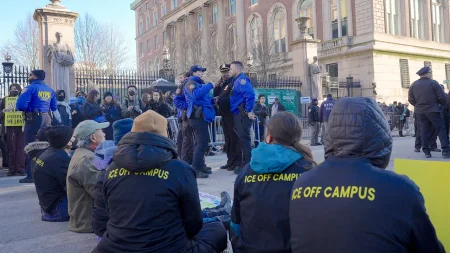Hidden Camera Scandal in Iowa Porta-Potties: A Disturbing Case of Privacy Invasion
A disturbing case has emerged from Iowa where 32-year-old Tyler Pavlick of Des Moines faces serious charges for allegedly hiding cameras inside portable toilets at community events. The Des Moines Police Department arrested Pavlick on Wednesday, charging him with multiple counts of sexual exploitation of minors and invasion of privacy. This troubling case highlights vulnerabilities in public spaces and raises important questions about privacy in places where people naturally expect to be safe from observation.
The incidents occurred at two separate local events in Iowa. According to authorities, Pavlick allegedly placed cameras beneath toilet seats to secretly record both adults and children without their knowledge or consent. The first discovery came on September 23 at the Lincoln Valley Golf Course in State Center, where the West Marshall Community School District was hosting a cross-country meet for middle and high school students from several districts. According to a criminal complaint, Pavlick allegedly installed the hidden camera at 3:39 p.m., just before the students’ races began, and then left the area. Alert attendees discovered the concealed device and immediately reported it to law enforcement, who secured the camera and began investigating. School officials were promptly notified of the situation, and authorities conducted interviews with potential witnesses while securing available surveillance footage that might help identify the perpetrator.
A second camera was discovered on October 4 at the Harvest & Handmade Fair at Water Works Park in Des Moines, establishing a pattern that helped investigators connect the cases. According to Sergeant Paul Parizek of the Des Moines Police Department, the recovered devices had captured footage of unsuspecting adults and children as they used the portable toilets. The Marshall County Sheriff’s Office, which was investigating the golf course incident, learned from Des Moines police detectives that they were looking into a similar case. This crucial communication between law enforcement agencies allowed them to share information and digital evidence that ultimately linked Pavlick to both incidents, demonstrating the importance of inter-departmental cooperation in solving crimes that cross jurisdictional boundaries.
The scope of the alleged crimes expanded significantly as the investigation progressed. In addition to the initial charges, Pavlick now faces a staggering 36 counts of sexual exploitation of a minor, one count of sexual exploitation of a minor to promote film, and 52 counts of invasion of privacy involving nudity. The extensive nature of these charges suggests investigators discovered substantial evidence during their examination of the seized cameras and possibly other devices belonging to the suspect. The case underscores the serious legal consequences for privacy violations, particularly those involving minors, and reflects society’s strong condemnation of such behavior. The number of charges also indicates that many individuals were affected by these invasions, creating a wide circle of victims who may never have known their privacy was violated had the cameras not been discovered.
This case touches on broader concerns about safety and privacy in public spaces, particularly temporary facilities like porta-potties that are common at fairs, sporting events, construction sites, and festivals. Most people reasonably expect privacy when using such facilities, making these allegations particularly disturbing. Parents who accompanied their children to these community events—a cross-country meet and a local fair—could not have anticipated such a violation of trust and security. The incident has likely prompted many Iowa community members to feel increased vigilance and concern about their surroundings, even in seemingly safe community gatherings. Local event organizers may now need to consider additional security measures or regular inspections of temporary facilities to prevent similar incidents in the future.
Pavlick remains in custody at the Polk County Jail on a $100,000 cash bond for the Des Moines case and is scheduled to return to court the following Monday. The substantial bail amount reflects the seriousness of the charges and potential flight risk. As the legal process moves forward, the communities affected continue to process this violation of trust. While the quick actions of attendees who discovered the cameras and the effective coordination between law enforcement agencies led to an arrest, the case serves as a sobering reminder of how technology can be misused to violate privacy in even the most unexpected places. For the families and individuals who attended these community events, particularly those with children participating in school activities, this case represents not just a legal matter but a deeply personal breach of the safety and security they rightfully expected at community gatherings.











